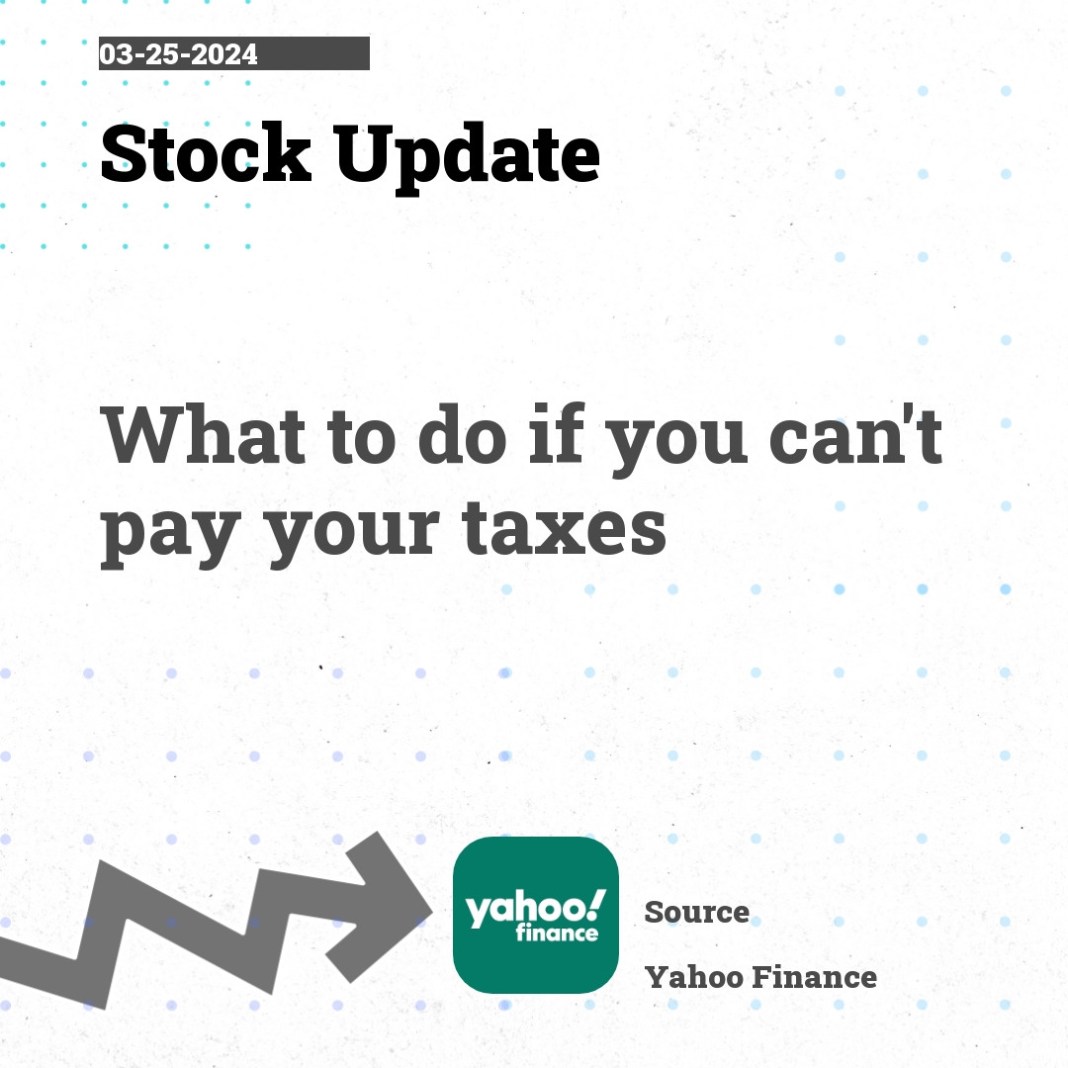The Bottom Line:
- The deadline for this year’s tax season is approaching, and some may struggle to pay due to inflation.
- If you can’t pay on the deadline day, be sure to still file your return to avoid more severe penalties.
- Potential penalties for late payment include a 0.5% per month charge of what you owe.
- IRS offers short-term and long-term payment agreements for those facing financial difficulties.
- If needed, taxpayers can pay their taxes with a credit card or take a personal loan to avoid issues with the IRS.
Filing Your Return on Time Despite Payment Challenges
Understanding Penalties for Late Payment of Taxes
The failure to file penalty is 5% per month of the unpaid taxes owed, whereas the failure to pay penalty is 0.5% per month of the tax bill. It’s crucial to file your return even if you can’t pay the taxes in full.
Payment Options and Agreements
Taxpayers facing challenges in paying their taxes on time can opt for short-term payment agreements that provide about six months to settle the bill. Alternatively, a long-term installment agreement can be arranged with the IRS, allowing up to 6 years to pay off the taxes.
Alternative Payment Methods and Assistance
In extreme cases where payment seems impossible, taxpayers can explore options such as paying taxes with a credit card, taking a personal loan, or negotiating special plans with the IRS. It’s important to file the return on time and engage with the IRS to find suitable solutions for tax payment issues.
Understanding Penalties for Late Tax Payments
Understanding Late Tax Payment Penalties
The penalty for failing to file your taxes is 5% per month of the unpaid taxes owed, making it crucial to file your return even if you can’t pay in full. In comparison, the penalty for late payment is 0.5% per month of the tax bill.
Payment Options Available
Taxpayers struggling to pay on time can consider short-term payment agreements providing around six months to settle the tax bill. Alternatively, a long-term installment agreement with the IRS allows up to 6 years for paying off taxes.
Alternative Solutions and IRS Assistance
In challenging cases, taxpayers can explore methods like paying taxes with a credit card, taking out a personal loan, or negotiating special plans with the IRS. It’s essential to file the return on time and engage with the IRS to resolve tax payment issues effectively.
Exploring IRS Payment Agreements for Financial Hardship
Exploring Options for IRS Payment Agreements in Cases of Financial Hardship
If you find yourself unable to pay your tax bill by the deadline, it’s essential to still file your return to avoid additional penalties. The failure to file penalty is more severe at 5% per month of the unpaid taxes, whereas the failure to pay penalty is only 0.5% per month.
IRS Assistance and Payment Plans
For those facing difficulties in paying taxes on time, the IRS offers short-term payment agreements that allow about six months to settle the bill. Alternatively, taxpayers can opt for a long-term installment agreement, providing up to 6 years to pay off the owed taxes.
Alternative Payment Methods and Support from the IRS
In extreme circumstances where paying taxes seems impossible, individuals can consider options like using a credit card or taking a personal loan to settle their tax bill. Additionally, the IRS offers special plans for those facing severe financial challenges to help them manage their tax obligations effectively.
Alternative Payment Methods for Tax Obligations
IRS Assistance and Payment Options
If you’re unable to pay your tax bill by the deadline, it’s crucial to still file your return to avoid further penalties. The failure to file penalty is more severe than the failure to pay penalty, so filing on time is essential.
Available Payment Agreements
Taxpayers with payment challenges can consider short-term agreements that provide around six months to settle the tax bill. Alternatively, a long-term installment agreement can be arranged with the IRS, offering up to 6 years for repayment.
Exploring Alternative Payment Methods
In cases of financial hardship, individuals can explore options such as paying taxes with a credit card or taking a personal loan. Special plans are available from the IRS for extreme situations where payment seems impossible.
Navigating Tax Payment Options with Credit Cards and Personal Loans
Payment Options with Credit Cards and Personal Loans
If you find yourself unable to pay your tax bill by the deadline, it’s crucial to still file your return. The penalties for failure to file are more severe than for failure to pay, so filing on time is essential.
Exploring IRS Assistance and Payment Plans
Taxpayers facing challenges in paying their taxes on time can consider short-term payment agreements or long-term installment agreements with the IRS. These options provide a window of time to settle the tax bill effectively.
Consider Alternative Payment Methods
In cases where financial hardship makes payment difficult, individuals can explore options like using a credit card or taking a personal loan to settle their tax obligations. The IRS also offers special plans for extreme situations where traditional payment methods are not feasible.




